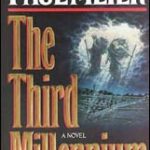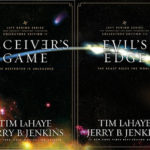Learning From Bad Books, Part 7
 “Gromit, that’s it! Cheese! We’ll go somewhere where there’s cheese!”
“Gromit, that’s it! Cheese! We’ll go somewhere where there’s cheese!”
I’ve saved the “best” quotes, from one of my “favorite” so-bad-it’s-actually-instructive Christian novels, for this, the last of the Learning from bad books series.
Yet I’m still hoping for more here than just laughing at the cheese, though there will likely be plenty of that. Instead I’m asking myself, why? Why do books with screech-hideous lines and cornball characters get published? Doesn’t anyone notice? Agents? Editors? Family members?
A little review of at least six lessons readers and writers can learn from bad books:
- Part 1: Even the worst of bad Christian novels may contain lessons on what to avoid.
- Part 2: Maybe Christians with different callings shouldn’t insist on writing novels.
- Part 3: Only you can prevent info-dumping, especially the “TTM” kind in dialogue.
- Part 4: Some novel authors seem not to understand fantasy as a genre, or its elements.
- Part 5: Other authors, even while writing fantasy, hold back — as if they fear what it is.
- Part 6: Saying “it’s only fiction” isn’t an excuse for writing lies about the real-life God.
Authentic, grace-based accountability between Christians not only helps prevent an author from writing falsehoods about God. Such honest interactions may also help an author see his blind spots when it comes to his story’s style. I can’t help but assume this kind of honesty is missing, judging from the stuff that too often gets published with a straight face.
Christian accountability: not just for preventing real sin
Some Christian books are just kind of so-so. A careless statement about Biblical truth, a cliché or stereotype that serves as an easy foil for an author’s agenda, a clunky dialogue or obvious info-dump. Other books may have a few pieces of cheese trapped in the pages. But then there’s this:
“An international computerized banking system will be located in Rome for our central banking system. [… W]e will be using the ancient Babylonian system for numbering names. […] Since I am founding the system, I am asking that all social security numbers be preceded by 666 despite the silly superstitions surrounding that number.
[…] “Those supporting me can register their vote by dialing 1-900-666-6666. Opponents can call 1-900-777-7777.” (The Third Millennium, pages 70-71)
“Emperor Gianardo! Emperor Gianardo! Are you hurt badly? […] The complete front of the White House collapsed. Guards are lying under the pillars. You have amazingly escaped alive!” (The Third Millennium, page 183)
Meanwhile, in Hell, two wisecracking demons are summoned by The Devil to do their best to wreck the humans’ lives and cause general recalcitrance and consternation. Their dialogue is evidently taken straight out of a Warner Brothers cartoon short starring Daffy Duck, only with less subtlety.
The following is an actual excerpt:
Satan arose. “Mercy? Where did you learn that word? … I don’t think you two slime-sucking swamp bottoms deserve to exist …” … Satan pointed to the center of the earth … “A perfect place to roast the likes of you two buffoons.”
(From my 2002 review of Beyond the Millennium)
And lest anyone think I am only picking on one book, I will also suggest a phrase from The Shack that could have been prevented if caring friends had sought to take action.
Instead of writing like his favorite authors, though, [the author] simply asserts in his own sentences the effects that their writing has on him. The result is oppressive, as in the description of a tree that the character Mack crashes into: As he lies prone and looks up into the tree, it is said “to stand over him with a smug look mixed with disgust and not a little disappointment.” Take a moment right now, reader, to see if you can arrange your face into an expression that communicates smugness mixed with disgust and disappointment. You will find it “not a little” impossible, and you have greater expressive range than trees. (From The Shack: Four Walls, Four Reviews, by Fred Sanders)
Perhaps nothing could have stopped these, and after all, everyone makes mistakes in a fallen world. (Discussion question: will out-of-place bad dialogue be “allowed” in New Earth novels?) Yet maybe accountability could have slowed these parts’ paths to publication.
Editors are friends, not enemies
Even as I sit here typing, I feel a clenching in my stomach. This is literally because the very idea of an editor is often frightening to me. Why? I work at a local newspaper; every article I write gets submitted to my editor. Yet a novel is much different. It’s the difference between taking care of someone else’s children or my own (future at this point) child. To each one I may give the same care, but my true and heartfelt affections are for a person or story that I have created.
Similarly, it sometimes it frightens me to read the Bible. Ever felt like that? I’m afraid of what it might say. God may, in those pages, challenge me to rethink my belief, or worse, behavior.
Yet even in discipline (not punishment), God helps His people grow. Similarly, friendly criticism can only help a novel get better. Editors, whether they are professionals or friends who don’t mind helping, should be unafraid to point out problems. Writers shouldn’t fear them either.
Just last month one author (you’d know the name) looked over my novel’s first chapter. She had very few criticisms. Then a well-known editor looked at the chapter. I have an idea for a better opening line, was one of the first things he said. Inwardly I flinched, but I hope I easily hid that reaction — not out of dishonestly, but intended to mortify that disgusting reflexive arrogance.
So I listened, and his suggestion was great. I made the change, and only swapped two words from his line around, so I could keep the same first word of the novel. What happens if someday he wants to change it back? I suppose I would have to fight that little mini-battle again.
Faithful are the wounds of a friend;
profuse are the kisses of an enemy.Proverbs 27:6
‘Dear brother, your story stinks’
This is like sanctification. It’s painful. And I wonder if comparing novel-editing to growing in holiness isn’t just an analogy. The two are related. Through listening to others’ criticisms of my work, being willing to make changes or even defend with grace a story as-is, God helps me grow.
Because I’m often a style and substance nitpicker (whether for right or wrong reasons), I’m also trying harder to keep that in mind as I’m reading others’ novels. Despite my inner sin-shrapnel, I can’t just mock others’ works and fail to apply the lessons I’d wish on them to my own self. Knowing I’ll fail so many times, even if I’m published, will aid in a humble perspective.
“Pro-fe-ssor Ma-lu-brich, I’m not at all surprised or angry about getting thrown out of school. Don’t think you’ve dealt a blow against me or hurt my feelings in any way, because you haven’t; you’ve only strengthened me through persecution. I’ll find another nice place to get my education, and someday, I guarantee that you and all of your—” Jeremy tried to keep his temper in check, but he listed the terms off anyway, his anger only intensifying—“left-wing, humanist, leftover-Nazi socialist closed-minded evolutionist Fascists will be feeling the sting from my faith in God!”
Oh no. Please stop. How much more Christian-conservative-cliché can you get? Who wrote that?
You’ve likely guessed.
I’m left to wonder about others’ cheese factories, moments of battling against inward pride — and, those tense times when others handed back your work and said hesitantly, “I liked it, but …”, and then, years later, you thanked them for their honesty. I’d love to hear about them.









































But editors are so nice! Well, at least, some of us try to be. Nice. Not scary.
[…] Learning from bad books, part 7: Faithful are the wounds of a friend; profuse are the kisses of an enemy.Proverbs […]